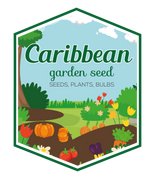Pepper plants not growing?
Address Common Issues with Expert Solutions.
1. Not Enough Sunlight
Pepper plants thrive on ample sunlight for optimal growth. Originating from warmer climates, most pepper strains benefit from a minimum of 6-12 hours of direct sunlight daily. Younger plants, in particular, require 14-16 hours of sunlight each day.
Insufficient sunlight causes weak, spindly plants with limited growth of flowers and fruit. It also causes a slew of events such as poor water absorption, slower transpiration, the inability to photosynthesize, and other issues.
Solutions:
- Place your pepper plants in an area of your garden that receives ample sunlight.
- Start pepper plants indoors with an indoor grow light.
- Consider using reflective materials to maximize light exposure.
2. Poor Soil Quality
- Relocate your potted plants to areas with full sun exposure. Soil quality can hinder pepper plant growth. Soil influences water drainage, root growth, and nutrient uptake. When these factors align, plants flourish. Without proper conditions, issues like root rot, wilting leaves, and water pooling may arise.
Soil needs compacting for it to remain intact, but not too much compacting that prevents water, oxygen, and nutrients from reaching the pepper plant's roots. Prior to the growing season, check in on your soil and see what improvements need to be made to prevent stunted pepper plants. Rich soil packed with organic matter tends to look darker, feels more moist, and crumbles away more easily. These are signs that your soil will allow your plant's roots to grow and expand, as well as have water and oxygen reach the roots.
Solutions:
- Aerate the soil and alleviate compaction for roots to grow.
- Remove any layer of thatch that has grown.
- Conduct a soil test to identify any deficiencies and make adjustments by enriching your soil with nutrients and other organic matter.
3. Temperature Extremes
As we previously mentioned, pepper plants originated from warm climate regions and thrive when temperatures reach anywhere between 70-85°F (21-29°C). Extreme heat or cold, however, stunts the growth of your pepper plants, so its important to maintain optimal temperature conditions as much as possible. This is especially true for younger pepper plants that require healthy growth for fruit development.
Solutions:
- Provide some shade for your plants from scorching heat during the hottest part of the day.
- Use protective coverings or bring potted plants indoors when temperatures drop below 55°F (13°C).
4. Inadequate Watering
Watering your pepper plants can be a major focus area for them not growing adequately. Underwatering pepper plants - especially young seedlings or newly transplanted plants - definitely stunts their growth and dries them out completely. While it is true, for some varieties, that the less water you give pepper plants, the hotter the peppers become, you should not underwater young pepper plants while they are still in their development phase.
Overwatering your pepper plants, on the other hand, also prevents them from thriving. When this happens, the excess water doesn't allow oxygen to enhance the soil's content, effectively reducing the nutrients needed for the plant to grow properly.
It can be a difficult task to find the right balance in watering your pepper plants. The symptoms from both overwatering and underwatering look the same, overall leading to stunted pepper plant growth. It's important to keep a close eye on your plant's watering to make sure it has just the right amount.
Solutions:
- Water plants deeply when the top inch of soil feels dry. You'll know this by sticking your finger into the soil to determine its moisture.
- Ensure proper drainage to prevent waterlogging.
- Provide mulch around your plants to retain moisture and help regulate soil temperature.

![[Seeds] - Caribbeangardenseed](http://caribbeangardenseed.com/cdn/shop/files/gift-card-gift-card-1_1024x1024_dfa857db-9150-4315-a362-7f0bb3fb9c47_60x28.png?v=1703978838)
Leave a comment